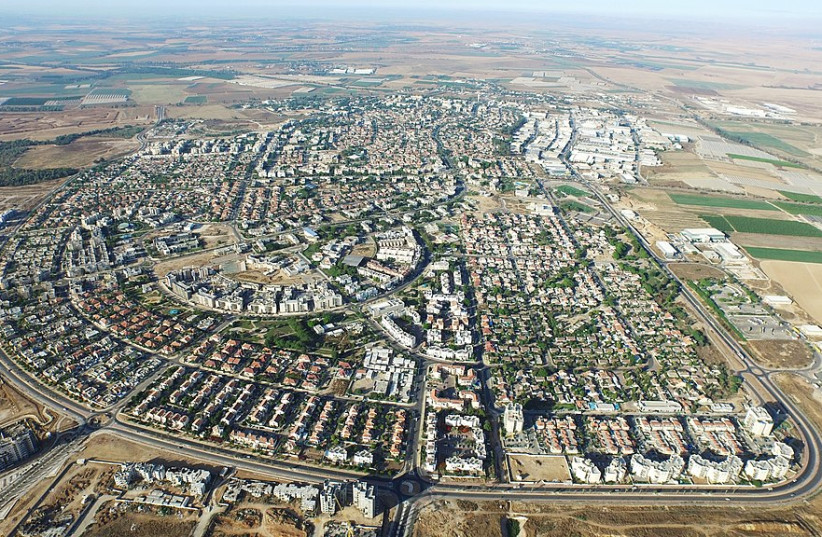In the war-torn, rocket-bombarded southern city of Netivot, the secret weapon of music is lifting the morale of residents.
Shmuel Elbaz, director of the Tanenbaum Music Conservatory in Netivot, has not only organized musical programs and events in the city; he also joins in the performances with top musical colleagues throughout the country.
Thus far, 12 concerts have taken place since the war began on October 7th. Elbaz is planning more performances while searching for more musicians to volunteer to play for the children and the community.
“My goal is to reach as many neighborhoods and people throughout Netivot as possible, bringing moments of pleasure and respite from the terrible situation we are in,” Elbaz told The Jerusalem Post. The residents of Netivot are accustomed to emergency situations, including sirens and missiles from previous rounds of attack, however, “if I can help for a little (while) to relieve the tension and simulate a situation of routine, I did my job,” he said.
Elbaz, an Israel Prize winner, is one of the foremost and versatile musicians both in Israel and internationally. A part of the Netivot community, he and his family live in a nearby suburb.

The music concerts in the South amid the war with Hamas
The concerts take place in protected spaces, shelters, and at times in lobbies of high-rise buildings. The audiences range from 20 to 50 people, mostly children and a few parents. “This is a respite for children who sit at home all day without any educational framework and under terrible stress,” Elbaz explained.
“Their parents are under stressful conditions and need a break too.”
“I had the opportunity to perform in a neighborhood where a missile fell in the central parking lot, shattering the windows on the balconies and leaving many burned cars in the lot. When a child sees such a spectacle from the window of his home, he is in a state of constant anxiety. I am sure the noise of the explosion, the sirens and the panic will accompany him for life. These children need comfort. Their parents calm them down, but there is nothing like music to lower the stress level and bring a smile to their faces.”
The feedback from the neighbors has been exciting and gratifying, said Elbaz. One of the mothers said that she herself felt a release, and another said this was the first time since the war began that she saw her child smile.
“I consider the needs of the population of the different neighborhoods and adjust the program for them,” he said. “In general, I try to bring diverse music programs to the children, including performances of Israeli music and happy folk songs from many different cultures around the world, such as Gypsy, Balkan, Hasidic and Italian music.
“To the ultra-Orthodox neighborhoods, I bring a composition of Andalusian music, piyyut (liturgical poems), sacred songs and traditional instruments such as the oud, canon, darbuka and mandolin.
“On many occasions,” he continued, “the children recognize the music and sing along. Sometimes a talent is discovered in the audience and gets to sing a solo.
Sometimes we engage the children in an (on-hands) singing, clapping and dancing experience.
Elbaz is pleased that colleagues and friends have responded to his call to come and play in Netivot, despite their fears of coming to the area.
“I thank violinist Pavel Levin, one of the best musicians in Israel, who came with a great instrumental program of world music. I also thank the many local artisans like Moshe Avital, Haim Maman and Dror Bohadana, who joined me. In addition, I am calling out to more bands and artists who want to do this mitzvah and make the children of Netivot happy. The residents need it and appreciate it very much,” he said.
